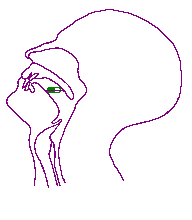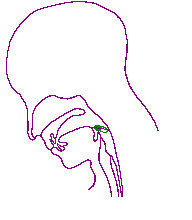Published: May 2003
Publications
Helping Medicine Capsules Go Down
Prescriber Update 24(1): 6
May 2003
Dr A.D (Sandy) Macleod, Medical Director, Nurse Maude Hospice, Christchurch; Jane Vella-Brincat, Drug Utilisation Review Pharmacist, Clinical Pharmacology Department, Christchurch Hospital
The physical properties of capsules predispose them to floating in the mouth when taken with water. As a result, the swallowing of capsules can be problematic. In patients who experience such difficulty, it is suggested that they try leaning forward when swallowing, as this has been found to assist. It may be necessary to reassure patients about this technique as they may initially find it unnatural to execute.
Capsules can be more difficult to swallow than tablets
Many patients have difficulties, both psychologically and physically, swallowing medicines. This may result in poor compliance, treatment failure and decreased quality of life. The swallowing of capsules can be particularly difficult. This is because capsules are lighter than water and float due to air trapped inside the gelatine shell.
In comparison, tablets are heavier than water and do not float. The usual method of swallowing oral solid dose forms - placing on the tongue, filling the mouth with water, tilting the head back and swallowing - works well for tablets because they do not float and gravity, when the head is tilted back, assists swallowing. If this technique is used with a capsule, it will float on the water in the front of the mouth, placing it in the anatomically incorrect location for ease of swallowing (see figure 1).1
Leaning forward may assist
Instead a 'lean-forward' technique has been suggested,1,2 in which the capsule floats to the back of the mouth and into a good position to be swallowed easily (see figure 2).
| Figure 1 | Figure 2 |

|

|
| Head titled back | Head lent forward |
Figures adapted from Kahn2
Brown1 in 1982 noted that this 'lean-forward' technique was "almost universally unknown" amongst physicians, nurses and pharmacists. This was borne out in a recent New Zealand study3 of healthcare worker volunteers, where very few of the volunteers were aware of this alternative technique to assist swallowing. In this study3 nine found it easier to swallow a capsule with their head tilted back while 21 found it easier with their head leaning forward. This represented a statistically significant difference, with the 'lean-forward' technique making the swallowing of capsules easier.3
Practice may be required to reinforce technique
Although rated as easier by many of these volunteers, the 'lean-forward' technique was also noted to be "awkward" and "unnatural". This is not surprising as swallowing is habitually associated with tilting the head backwards. Patients require instruction, and ideally practice, to grasp this alternative technique. This is particularly so for the elderly, the young, the cognitively compromised and the sick. Once learnt, the benefit rapidly reinforces the practice. This technique does not work for all but may be a viable option for those patients in whom the swallowing of capsules is a problem. It should, however, not be applied to any other oral dosage formulation.
Most capsules are intended to be swallowed whole so patients should be encouraged to trial the 'lean-forward' technique. If swallowing difficulties remain other options, such as a liquid or tablet form of the medicine, can be considered.
Competing interests: none declared.
Correspondence to: Dr A.D (Sandy) Macleod, Medical Director, Nurse Maude Hospice, 35 Mansfield Avenue, Christchurch. Phone (03) 355 0074, fax (03) 355 0067, email sandym@nursemaude.org.nz
References
- Brown JA. Swallowing medication [letter]. JAMA 1982;248(15):1833-1834.
- Kahn G. Capsule swallowing: The lean-forward technique. CUTIS 1985;36(2):144.
- Macleod AD, Vella-Brincat J, Frampton C. Swallowing capsules [letter]. Palliative Medicine 2003;Sept:559.





